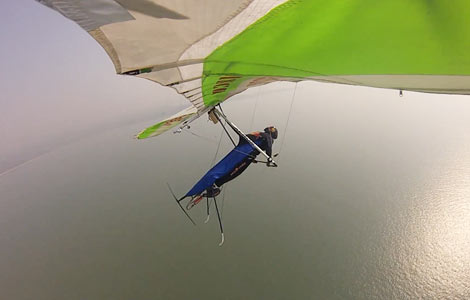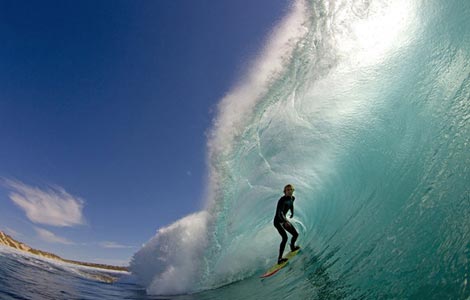Backgrounder: Timeline of ex-Israeli PM Sharon's life
Updated: 2014-01-12 01:49
(Xinhua)
|
||||||||
JERUSALEM - Former Israeli Prime Minister Ariel Sharon, who died at the age of 85, is one of the most influential, controversial and historic figures in the Israeli society.
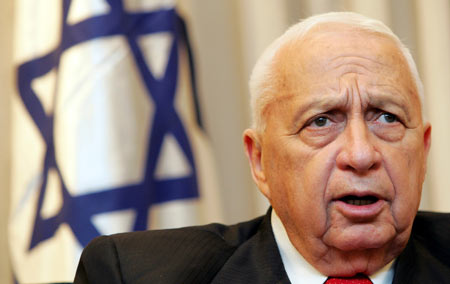 |
|
Israeli Prime Minister Ariel Sharon attends a meeting with the Israeli president Moshe Katsav in Jerusalem in this February 21, 2005 file photo. Ariel Sharon passed away on January 11, 2014 at the age of 85. [Photo/Agencies] |
His life time had intersected with major stops in the history of the state of Israel. Following is a chronology of key events in his life.
1928: He was born in Kfar Malal in central Israel to Russian immigrants.
1945: He joined the paramilitary Haganah organization.
1948: He was wounded in battle during the War of Independence near Jerusalem.
1953: He established Special Forces Unit, the 101 Unit, to fight guerilla attacks by Arabs.
1956: He became commander of Paratroopers unit in the Suez Canal crisis.
1962: His wife Margalit was killed in a car accident.
1968: His 11 year-old son Gur died after playing with a loaded gun.
Early 1970's: He was appointed as Southern Command Chief in the Israeli Defense Forces.
1973: He was summoned back to the army amid the outbreak of the Yom Kippur War; He led division of reserve soldiers through bloody holding-defense battles across the Suez Canal; He became one of the founders of the right-wing Likud Party.
Late 1970's: He became agriculture minister and cultivated the establishment of settlements in the West Bank.
1981: He was appointed as Defense Minister in the right-wing government led by Menahem Begin and took charge of evicting settlements off Sinai amid the 1979 Peace Accord between Israel and Egypt.
1982: He initiated the "Operation for the Peace of Galilee," which developed into the Lebanon War; He allowed the entry of Lebanese Christian militia into the Sabra and Shatila Palestinian refugee camps in Lebanon; hundreds of refugees are massacred.
1983: An inquiry committee charged Sharon was no longer eligible to serve as Defense Minister while overlooking the danger of slaughter in the refugee camps. He was criticized for feeding Prime Minister Begin with wrong information concerning the objectives and scope of the operation.
1984: He served as minister of industry and commerce.
1990: He served as housing minister, further advancing construction projects in the settlements.
1996: He was appointed as infrastructure minister in then Israeli Prime Minister Benjamin Netanyahu's first government. Afterwards he was appointed as foreign minister.
1999: Netanyahu lost his elections to Labor candidate Ehud Barak and left post as chairman of the Likud Party. He was replaced by Ariel Sharon.
2000: He embarked on a controversial visit to the highly sensitive Temple Mount, sacred to both Jews and Muslims, which set off second Intifada (uprising).
2001: He beat then Prime Minister Ehud Barak in the national elections and became prime minister for the first time.
2001: He was involved in corruption affairs, the main one known as the "Greek Island," in which Sharon as Foreign Minister advanced business interests in Greece for a business man while using his contacts with Greek officials for a bribe. No indictment was filed.
2002: A wave of Palestinian militant attacks triggered Sharon to start the construction of a separation barrier in the West Bank; after a deadly attack which killed 30 Israelis in a hotel in central Israel, Sharon orchestrated a military operation to conquer the West Bank territories in the operation of "Defensive Shield."
2003: Israeli elections conducted again, Sharon and the Likud won by a landslide, becoming prime minister for the second term in a row. Sharon expressed for the first time his endorsement of the "Road Map" outline for peace between Israel and the Palestinians, presented by the United States, European Union and Russia.
August 2005: He carried out the historic "Disengagement Plan" from Gaza, evacuating thousands of Israeli settlers and army bases from the strip.
November 2005: Amid growing tensions in his right-wing party, Sharon withdrew from the Likud and established the center-left Kadima Party.
December 2005: He underwent first minor stroke.
January 2006: He suffered another stroke and slipped into a coma. Afterwards he was replaced by former Prime Minister Ehud Olmert.
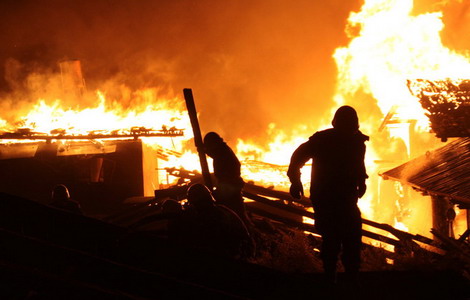
 Ancient town in Shangri-la devastated by fire
Ancient town in Shangri-la devastated by fire
 Magazine picks best US Air Force photos
Magazine picks best US Air Force photos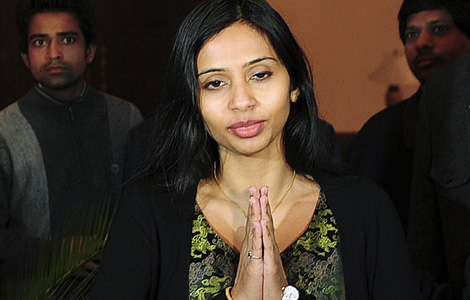
 US to withdraw diplomat at India's request
US to withdraw diplomat at India's request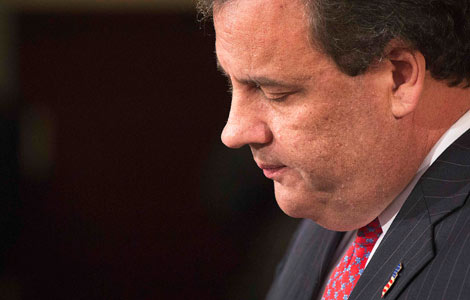
 New Jersey braces for new disclosures in bridge scandal
New Jersey braces for new disclosures in bridge scandal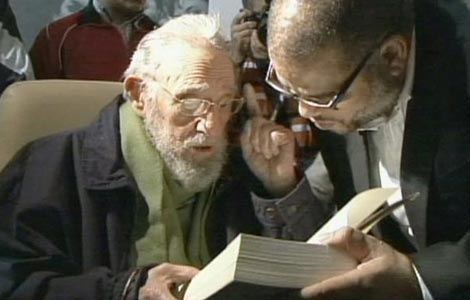
 Fidel Castro makes rare public appearance
Fidel Castro makes rare public appearance
 Migrants feel pain of separation
Migrants feel pain of separation
 Websites to be liable for sales of bad food, medicine
Websites to be liable for sales of bad food, medicine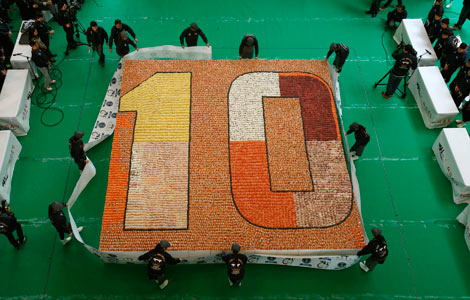
 Largest sushi mosaic created in HK
Largest sushi mosaic created in HK
Most Viewed
Editor's Picks

|

|
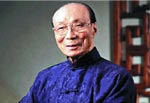
|

|

|

|
Today's Top News
Former Israeli Prime Minister Sharon dead
US to withdraw diplomat at India's request
Top scientists awarded $826,000
Eight foreign scientists win Chinese sci-tech awards
New documents released in NJ bridge scandal
Nation 'has landed trading crown'
US regrets over India's expulsion of American diplomat
Fischer named as Fed vice chairman
US Weekly

|

|


